Medicare Plans in Idaho
Medicare is a federal health insurance program for US citizens or permanent residents 65 or older and certain people under the age of 65 with a qualifying disability or illness.
Who’s eligible for a Medicare Plans in Idaho?
If you are 65 or older, you can qualify for Medicare if:
- You are a US citizen or permanent US resident having lived in the US for the past 5 years and
- You or your spouse have worked at a job that has contributed to Medicare through Social Security deductions for at least 10 years or is a government employee/retiree who has paid Medicare taxes while working.
If you are under the age of 65, you can also qualify for Medicare if you have:
- Amyotrophic Lateral Sclerosis (ALS), or
- End-Stage Renal Disease (ESRD), or
- Have been a recipient of Social Security Disability Insurance (SSDI) for at least 24 months.
We can help you determine your eligibility and options. Talk to a licensed insurance agent by calling the number above.

What are the Medicare Plans in Idaho?
Orginial Medicare Part A & Part B
Original Medicare is the government sponsored portion of Medicare, which has two parts:
Part A (Hospital Insurance) covers inpatient services, like hospital care, hospice care, and care from a skilled nursing facility.
Part B (Medical Insurance) covers outpatient medical services/supplies, like ambulance services, blood sugar monitors, and wheelchairs. Part B also covers some preventive care services like flu shots, cardiovascular screenings, and a one-time “Welcome to Medicare” preventive visit.
Original Medicare doesn’t cover everything, like prescription drugs, long term care (i.e. care received at a nursing home), vision, hearing exams or hearing aids. That’s why there are Medicare plans available through private insurance companies, so that you can get the protection you want.
Medicare Advantage Plans (Part C)
Private insurance companies, contracted with Medicare, offer Medicare Advantage plans (also known as Medicare Part C). These plans provide an alternative to Part A and B coverage provided by Original Medicare. Part C plans must provide the same coverage as Original Medicare and can include additional benefits, like dental and vision coverage. Some plans, called Medicare Advantage Prescription Drug (MAPD) plans, also provide prescription drug coverage.
To enroll in a Medicare Advantage plan, you must first be enrolled in both Parts A and B of Original Medicare. If you choose to enroll in a Medicare Advantage plan you must continue paying your Part B premium in addition to this plan premium.
For more information about Medicare Advantage plans, click here.
Medicare Prescription Drug Plans (Part D)
Prescription drugs are not covered by Original Medicare Parts A and B or Medigap plans. Medicare Prescription Drug (Part D) plans are offered by Medicare-approved private insurance companies to limit out-of-pocket costs for medications. These plans put medications into tiers, with each tier having a certain copay or coinsurance. Each Medicare Part D plan provides a formulary, so you can see what the coinsurance/copay would be for each drug. This way, you can select the plan that best matches your prescription needs.
Medicare Prescription Drug plans are provided and coordinated by private insurance companies contracted with Medicare. Any beneficiary who is eligible for Original Medicare, Part A and/or Part B, and is a permanent resident of the Medicare Prescription Drug Plan service area, can sign-up for Medicare Part D. Medicare Prescription Drug coverage is optional. You might pay a late-enrollment penalty if you enroll later, rather than enrolling as soon as you’re eligible.
You can get Medicare Part D coverage through a stand-alone Medicare Prescription Drug Plan if you’re enrolled in Original Medicare, or, through a Part C plan, by enrolling in a Medicare Advantage plan that includes drug benefits, also known as a Medicare Advantage Prescription Drug Plan (MAPD). Different insurers offer different types of plans, so your monthly plan premiums and out-of-pocket expenses for prescription drugs will vary from plan to plan.
For more information about Medicare Prescription Drug plans, click here.
Medicare Supplement Plans (Medigap)
Medicare Supplement plans, offered by Medicare-approved private insurance companies, help to provide a more comprehensive Medicare coverage. They are also known as Medigap plans because they are designed to fill some coverage gaps left by Original Medicare Parts A and B. These plans work alongside Original Medicare to help reduce out-of-pocket costs by covering things like deductibles, coinsurance, and copays.
For more information about Medicare Supplement plans, click here.
When Can I Enroll In A Plan?
Medicare Advantage and Medicare Prescription Drug Plans
Your Initial Enrollment Period (IEP) is your first chance to enroll in Medicare plans in Idaho. This IEP starts three months before your 65th birth month and continues for three months after your birth month. This means that you have seven months total to complete your enrollment.
Once your IEP ends, you can make changes to your Medicare Advantage or Prescription Drug plans during the Annual Election Period (AEP). The AEP occurs from October 15th to December 7th every year.
Medicare Initial Enrollment Period

7-Month Initial Enrollment Period | Begins 3 months before the month you turn 65
*Signing up for Parts A and B during months 5,6, and 7 may result in delayed coverage.
KEY FACT: The General Enrollment Period provides you an opportunity to enroll in Original Medicare if you missed your IEP. This period occurs every year from January 1st to March 31st. Then, you’ll have an opportunity to select a Medicare Advantage Plan from April 1st through June 30th.
Additional Medicare Resources in Idaho
Idaho’s Senior Health Insurance Benefits Advisors Program (SHIBA) provides Idahoans on Medicare with free, confidential counseling and community education for Idahoan Medicare beneficiaries and their representatives.
Sources: Medicare.gov; www.doi.idaho.gov
